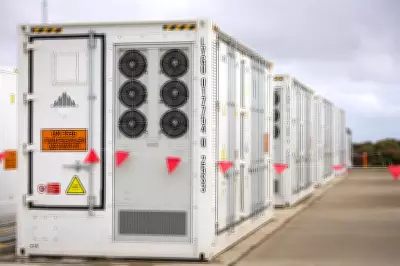
Corner stores represent far more than just convenient shopping destinations across Australian towns and suburbs. These local institutions hold deep cultural significance while simultaneously driving substantial economic value, according to new analysis from Westpac.
The Cultural Heartbeat of Communities
For generations, corner stores have served as foundational elements within Australian communities. They're the places where shopkeepers know customers by name and childhood milestones are celebrated. Many Australians recall their first independent errand - cycling to the local store to buy milk for mum, then using the spare change for a well-deserved ice cream.
Beyond personal memories, these businesses actively support community initiatives, frequently sponsoring local football teams and keeping regional towns vibrant. In country areas particularly, main streets defined by these small businesses form the backbone of Australian rural life.
The Economic Power of Small Business
While large corporations often dominate productivity discussions, Australia's 2.6 million small businesses represent a massive untapped opportunity for national prosperity. According to Westpac's Chief Executive of Business and Wealth Paul Fowler, small and medium-sized enterprises contribute significantly to the nation's economic landscape.
Small businesses deliver 54 per cent of value added to the Australian economy and employ 65 per cent of the total workforce. However, a compelling opportunity exists in addressing the productivity gap. Currently, SMEs operate at just 33 per cent of large-firm productivity levels.
Westpac economists calculate that narrowing this productivity divide could potentially add 1.3 per cent to Australia's GDP. This represents one of the most significant economic opportunities currently facing the nation.
The $100 Solution
A simple behavioural change among Australian consumers could unlock substantial economic benefits. Westpac is encouraging Australians to redirect just $100 per week toward local businesses instead of larger chains or online retailers.
If enough households adopt this spending shift, the economic impact would be substantial. The first year alone could generate $16 billion in nominal GDP and create approximately 38,000 new jobs.
When consumers purchase from local stores, that money recirculates within the community multiple times. It supports local employment, pays wages that get spent at neighbouring businesses, keeps shopfronts occupied, and contributes to suburb safety.
Thriving local businesses aren't merely convenient - they function as critical infrastructure for Australian prosperity. By supporting them, Australians ultimately support their own communities and the national economy.
Paul Fowler emphasises that backing local businesses means they'll return the favour, creating a virtuous cycle of community support and economic growth across urban and regional Australia.





